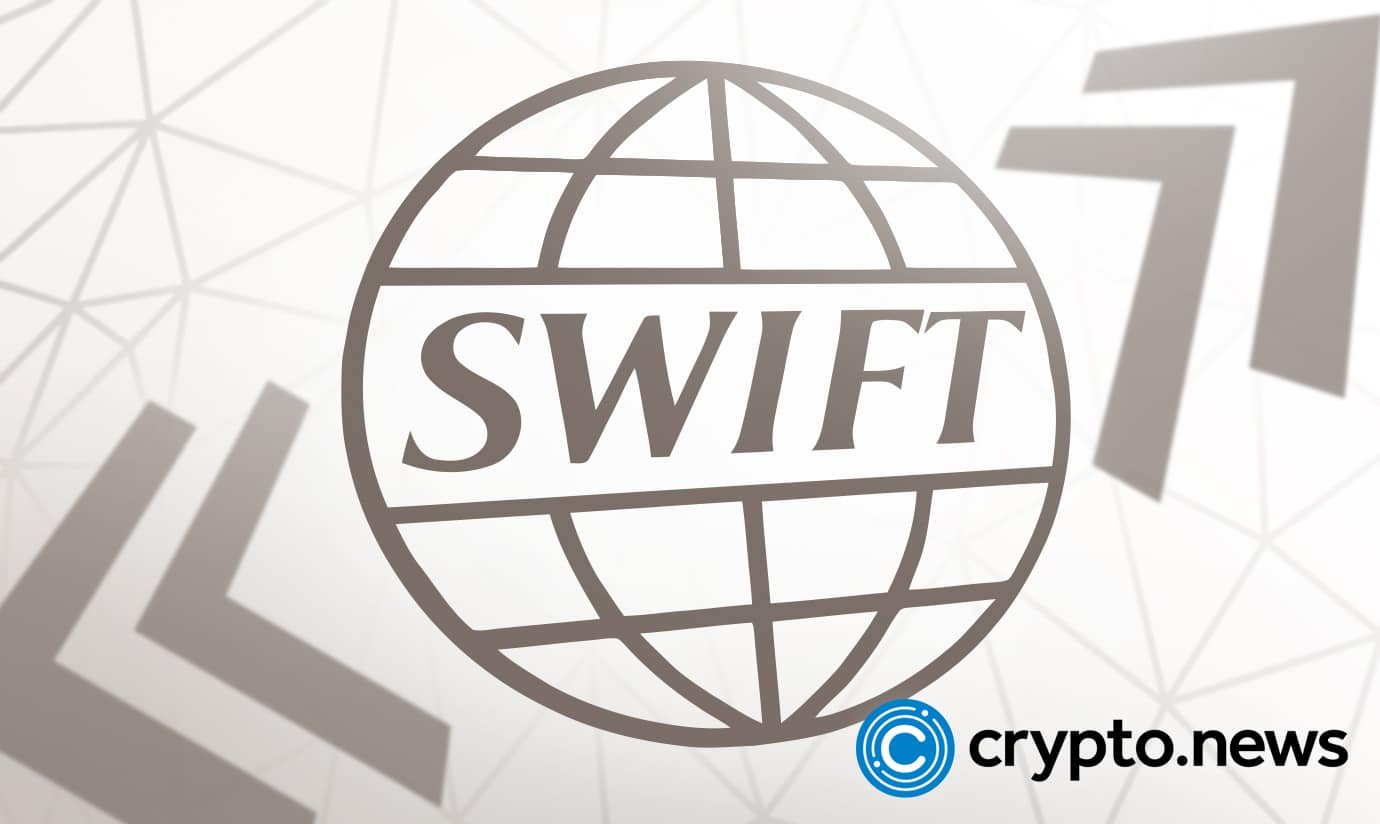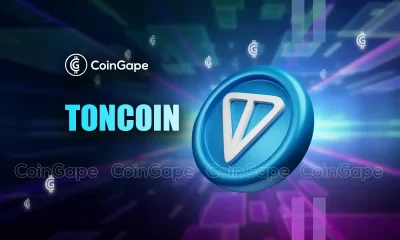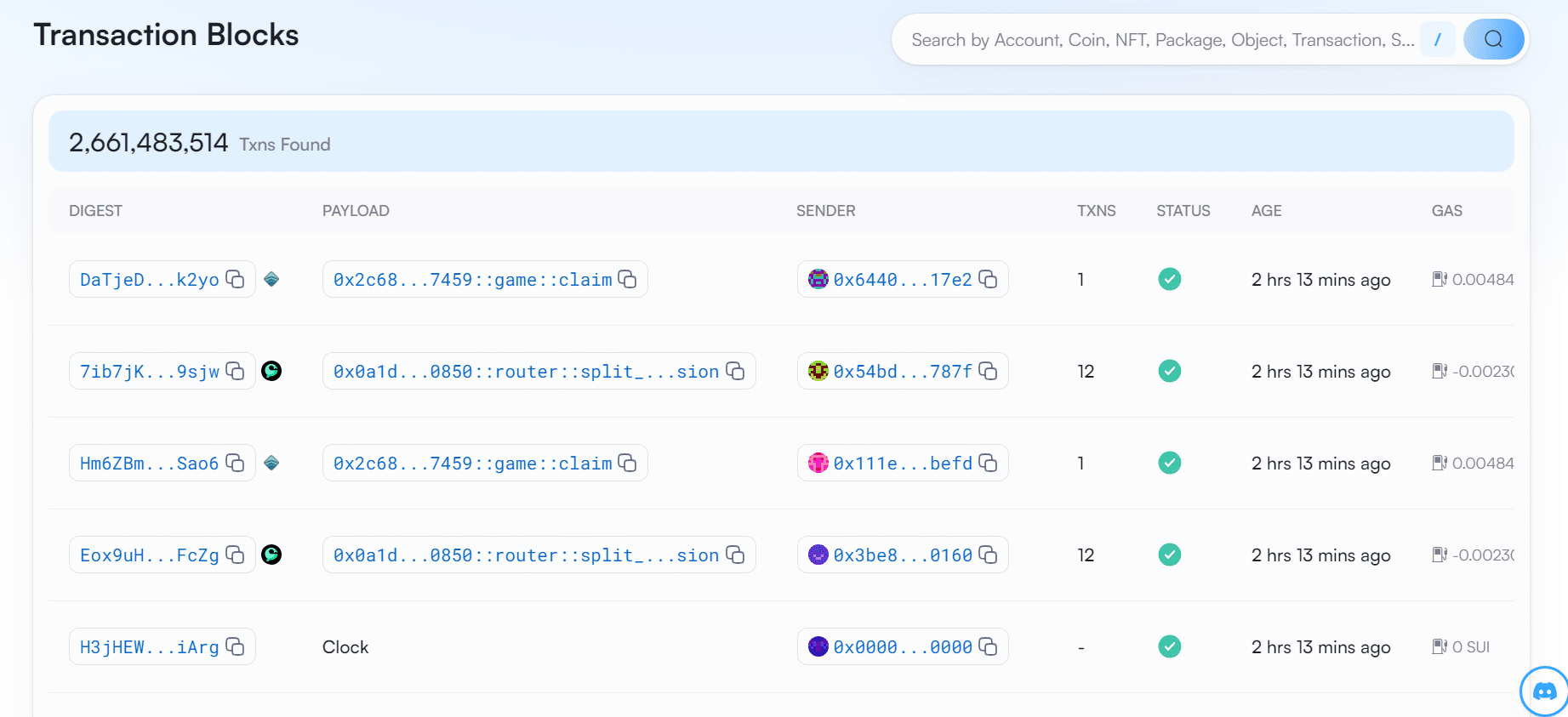Blockchain
SWIFT to trial tokenized asset transactions in 2025
Published
2 months agoon
By
admin

SWIFT will trial live transactions of tokenized assets and digital currencies in 2025, aiming to integrate blockchain-based tokens into the broader financial system.
Global financial messaging network SWIFT will trial live transactions of tokenized assets and digital currencies in 2025, marking a step toward broader adoption of blockchain-based finance, per a Reuters report on Oct. 3.
Banks and asset managers have long explored tokenizing assets like bonds, hoping blockchain technology can streamline trading and cut costs by eliminating middlemen. However, these efforts have struggled to gain traction in the wider market.
SWIFT has been involved in trials of central bank digital currencies and tokenized assets. The network’s latest initiative aims to connect these innovations with traditional banking, a move SWIFT says reflects rising industry demand for real-world digital asset transactions.
“To successfully trade and settle a tokenized bond transaction, you need the cash and that’s where a tokenized deposit or wholesale CBDC comes in. It’s not good enough if you just have delivery or just payment, you need both.”
SWIFT
As 90% of the world’s central banks explore digital currency options, SWIFT’s new platform — expected to launch within the next one to two years — aims to integrate CBDCs into the financial ecosystem. The organization believes that successful trading and settlement of tokenized bonds require both tokenized deposits or wholesale CBDCs, ensuring that payment and delivery are equally supported.
However, despite SWIFT’s integration efforts, not all countries are rushing to develop their digital currencies. Concerns persist regarding technological and regulatory hurdles, as highlighted by Sweden’s Riksbank, which emphasized the need for extensive technical and regulatory development to ensure secure offline payments with e-kronas.
Source link
You may like


Senator Lummis wants to replenish Bitcoin reserves with gold


Will Toncoin Price Hit $10 After Recent 20% Rally?


AI Crypto Startup O.XYZ Faces Allegations of Misrepresentation and Internal Turmoil: Sources


Gensler to resign as SEC chair: What’s next under Trump?


Ripple Provided The Blueprint To Defeat Gary Gensler


Another U.S. SEC Democrat to Drop Out, Leaving Republicans Running Agency by February
Blockchain
Blockchain Association urges Trump to prioritize crypto during first 100 days
Published
1 day agoon
November 22, 2024By
admin

The Blockchain Association has called on president-elect Donald Trump and Congress to prioritize five key actions during the administration’s first 100 days to establish the U.S. as a global leader in cryptocurrency innovation.
In an open letter, the industry group outlined specific measures to address regulatory challenges and support the domestic digital asset economy.
The Blockchain Association is a U.S.-based crypto lobbying group advocating for a regulatory framework for cryptocurrencies. They emphasized lifting the bank account ban on crypto companies and appointing new leadership for the SEC, Treasury Department, and IRS.
They also proposed creating a cryptocurrency advisory committee to work with Congress and federal regulators.
Five priorities for Trump’s first 100 days
The letter highlighted five steps aimed at fostering a supportive environment for crypto businesses and users:
- Creating a Crypto Regulatory Framework
The Blockchain Association urged Congress to draft comprehensive legislation for cryptocurrency markets and stablecoins. This framework, it argued, would balance consumer protection with innovation. Stablecoins are digital currencies tied to traditional assets, such as the U.S. dollar, offering price stability for users. - Ending the Debanking of Crypto Companies
The group expressed concern over crypto businesses losing access to banking services. These companies rely on traditional banks to handle payroll, taxes, and vendor payments. Without banking access, their operations can be severely disrupted. - Reforming the SEC and Repealing SAB 121
The association called for a new SEC chair to replace what it described as a hostile regulatory approach under the current leadership. It also recommended reversing SAB 121, an accounting rule that imposes strict requirements on crypto-related businesses. - Appointing New Treasury and IRS Leadership
Tax policies for cryptocurrencies, such as the proposed Broker Rule, have been criticized for potentially stifling innovation and driving companies offshore. The letter urged the administration to appoint leaders who would support privacy and foster a fair tax environment for digital assets. - Establishing a Crypto Advisory Council
The letter proposed a council to facilitate collaboration between the industry, Congress, and federal regulators. Public-private partnerships, it said, could create rules that protect consumers while encouraging innovation.
Crypto collaboration
In their letter, the Blockchain Association emphasized its readiness to work with the administration and 100 member organizations to ensure the U.S. regains its position as a financial and technological innovation leader.
“We stand ready to work with you to ensure the United States can regain its position as the crypto capital of the world,” the Blockchain Association wrote in the letter.
This letter comes as Trump adopts a strong pro-crypto stance. Earlier in November, reports emerged that Trump plans to create a White House position solely focused on cryptocurrency and related policies.
This letter also comes a day after crypto-foe and SEC chair Gary Gensler announced his upcoming resignation.
Source link
Blockchain
Sui Network blockchain down for more than two hours
Published
3 days agoon
November 21, 2024By
admin
The Sui Network is suspected to be down for more than two hours. The protocol has not produced any new transaction blocks since Nov. 21 UTC 9:15.

Based on the latest data from Sui Network’s explorer site Sui Vision, the decentralized layer-1 blockchain has stopped producing blocks for more than two hours.
At the time of writing, the last transaction block took place on Nov. 21 at 9:15 am UTC. Since then, no new blocks have been produced on the blockchain.
The Sui Network confirmed the outage on its official X account, stating that the blockchain is currently unable to process transactions. However, it claims that the problem has been identified and will be back to normal soon.
“We’ve identified the issue and a fix will be deployed shortly. We appreciate your patience and will continue to provide updates,” wrote the protocol on X.
Service Announcement: The Sui network is currently experiencing an outage and not processing transactions. We’ve identified the issue and a fix will be deployed shortly. We appreciate your patience and will continue to provide updates.
— Sui (@SuiNetwork) November 21, 2024
Sui’s blockchain outage has seemingly impacted the SUI token price. According to data from crypto.news, the Sui token has gone down by nearly 2% in the past hour. It is currently trading hands at $3.41. In the past 24 hours, SUI has plummeted by 7.29%.
Even though, the token has gone up by nearly 75% in the past month.
SUI currently ranks in the 18th place in the lineup of cryptocurrencies, holding a market cap of $9.7 billion and a fully diluted valuation of $34 billion. The Sui token has a circulating supply of $2,8 billion tokens.
The South Korean crypto exchange, Upbit, announced it will be temporary suspending deposits and withdrawals for the Sui token due to its block generating outage.
The notice informs users that if they deposit or withdraw Sui tokens after the announcement was posted, then there is a chance that their funds cannot be recovered.
Several crypto industry figures took to X to comment on the recent Sui Network outage. Most of them teased Sui’s goal of becoming Solana’s biggest competitor. Ironically, the Solana blockchain also has a track record of outages in the past, with the latest one recorded in February this year.
“Sui [is] just repeating Solana history,” said one X user.
“Hasn’t Solana gone down multiple times?” asked another X user.
“SUI blockchain is down. And they claimed to be a Solana Killer,” wrote crypto YouTuber Ajay Kashyap on his X post.
Source link
Blockchain
SBI, UBS and Chainlink complete pilot for automated tokenized fund solution
Published
5 days agoon
November 18, 2024By
admin

SBI Digital Markets, UBS Asset Management, and Chainlink have successfully completed a pilot program showcasing the use of smart contracts to manage tokenized funds.
The companies announced this on Nov. 18, noting that the solution brings automated tokenized fund management to the market and leverages the Chainlink (LINK) infrastructure. With this solution, users can automate their tokenized fund management processes, unlocking blockchain capabilities for the world’s $132 trillion assets under management market.
urrently, the total real-world assets on-chain represent a market of around $13.2 billion.
Solution allows for efficient scaling of tokenized funds
According to a press release, the tokenized fund pilot demonstrated how fund managers can leverage smart contracts and Chainlink’s Cross-Chain Interoperability Protocol to efficiently scale their products on-chain and across distributors.
Central to this initiative is the Digital Transfer Agent smart contract model, a novel fund administration system that utilizes multiple Chainlink oracle networks. SBI’s custodian and fund distributor successfully deployed this model to enable multi-chain subscriptions and redemptions.
As the tokenized funds industry evolves to attract the world’s top players, the demand for on-chain administration is increasing. Notably, a recent report revealed that 93% of fund services providers do not offer full automation for their data inputs and workflow processes. This lack of automation creates key bottlenecks for traditional fund operators.
However, smart contracts, oracle networks, and tokenized funds provide the asset management industry with a pathway to full automation.
“This new way of launching fund structures and administering them via smart contracts empowers both fund managers and their service providers to deliver new on-chain financial products and lower operational costs to investors, both things they are actively looking for,” said Winston Quek, chief executive officer at SBI Digital Markets.
The solution, currently live on various blockchain testnets, will soon go to mainnet.
SBI Digital Markets, UBS Asset Management, and Chainlink announced the solution at the Singapore Fintech Festival, launching it as part of the Monetary Authority of Singapore’s ‘Project Guardian.’
This development follows a partnership between Swift, UBS Asset Management, and Chainlink aimed at bridging tokenized assets with legacy payment systems. UBS also recently unveiled a pilot for cross-border payments called “UBS Digital Cash”.
Source link

Senator Lummis wants to replenish Bitcoin reserves with gold

Will Toncoin Price Hit $10 After Recent 20% Rally?

AI Crypto Startup O.XYZ Faces Allegations of Misrepresentation and Internal Turmoil: Sources

Gensler to resign as SEC chair: What’s next under Trump?

Ripple Provided The Blueprint To Defeat Gary Gensler

Another U.S. SEC Democrat to Drop Out, Leaving Republicans Running Agency by February

Catzilla vs Cardano vs TRX for year-end success

Will Polkadot Price Continue To Rally Following 100% Surge?

Dogecoin, Shiba Inu set the trend; this altcoin is ready to take the spotlight next

This Analyst Correctly Predicted The Bitcoin Price Jump To $99,000, But His Prediction Is Not Done

Analyst Who Accurately Predicted Solana Price Rally Shares Next Target

NFT sales drop 9.6% to $160.9m, Ethereum and Bitcoin network sales plunge

SHIB Lead Shytoshi Kusama Hints At TREAT Token Launch

Trader Says Top-10 Altcoin To Vastly Outperform Bitcoin and Ethereum, Hit New Record High Quicker Than Expected

5 tokens to consider buying today
182267361726451435

Why Did Trump Change His Mind on Bitcoin?

Top Crypto News Headlines of The Week

New U.S. president must bring clarity to crypto regulation, analyst says

Ethereum, Solana touch key levels as Bitcoin spikes

Will XRP Price Defend $0.5 Support If SEC Decides to Appeal?

Bitcoin Open-Source Development Takes The Stage In Nashville

Bitcoin 20% Surge In 3 Weeks Teases Record-Breaking Potential

Ethereum Crash A Buying Opportunity? This Whale Thinks So

Shiba Inu Price Slips 4% as 3500% Burn Rate Surge Fails to Halt Correction

‘Hamster Kombat’ Airdrop Delayed as Pre-Market Trading for Telegram Game Expands

Washington financial watchdog warns of scam involving fake crypto ‘professors’

Citigroup Executive Steps Down To Explore Crypto
Mostbet Güvenilir Mi – Casino Bonus 2024

Bitcoin flashes indicator that often precedes higher prices: CryptoQuant
Trending

 2 months ago
2 months ago182267361726451435

 Donald Trump4 months ago
Donald Trump4 months agoWhy Did Trump Change His Mind on Bitcoin?

 24/7 Cryptocurrency News3 months ago
24/7 Cryptocurrency News3 months agoTop Crypto News Headlines of The Week

 News3 months ago
News3 months agoNew U.S. president must bring clarity to crypto regulation, analyst says

 Bitcoin4 months ago
Bitcoin4 months agoEthereum, Solana touch key levels as Bitcoin spikes

 Price analysis3 months ago
Price analysis3 months agoWill XRP Price Defend $0.5 Support If SEC Decides to Appeal?

 Opinion4 months ago
Opinion4 months agoBitcoin Open-Source Development Takes The Stage In Nashville

 Bitcoin4 months ago
Bitcoin4 months agoBitcoin 20% Surge In 3 Weeks Teases Record-Breaking Potential


